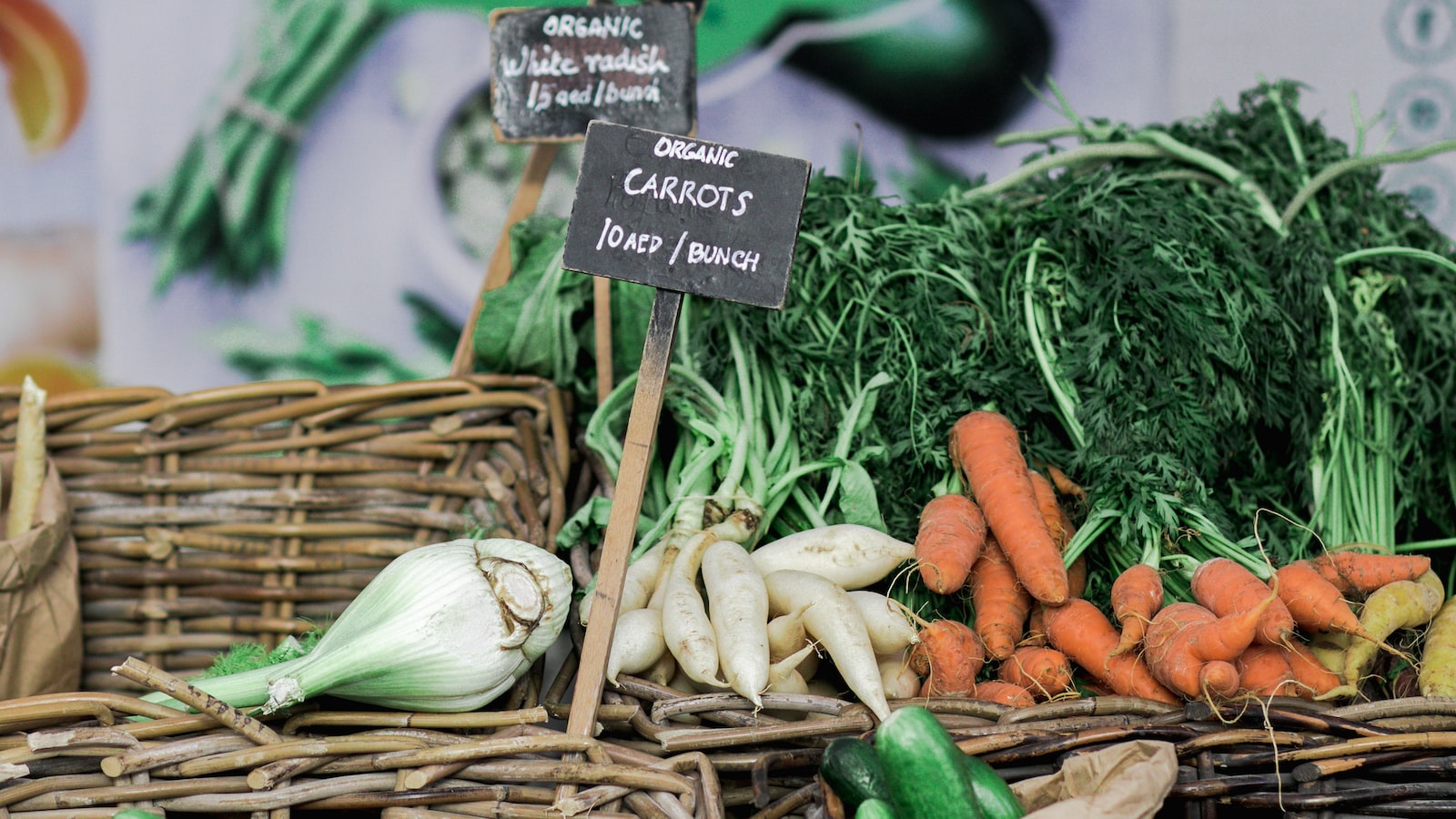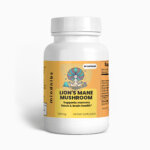
“Is Organic Coffee Worth the Hype? Unveiling the Truth”
In recent years, the organic coffee industry has been gaining popularity as consumers become more aware of the impact of their coffee choices on both their health and the environment. But with all the hype around organic coffee, it’s natural to be skeptical about its benefits and whether it’s worth the extra cost. In this article, we’ll examine the truth behind organic coffee and determine whether it truly lives up to its reputation. After weighing the pros and cons, we’ll help you make an informed decision about whether to invest in organic coffee or stick with conventional options. Get ready to uncover the truth about organic coffee and allow us to persuade you with the facts.
1. Introduction: Organic Coffee – the Hype and the Reality
Coffee has become an essential part of our daily lives. Whether you drink it for the taste or the caffeine, you’d want to know that what you’re sipping is good for you. Organic coffee has been in the limelight recently, with many people jumping on the bandwagon of consuming only organic. The hype around organic coffee is immense, and it’s time we separated the facts from fiction.
Organic coffee is grown without the use of synthetic fertilizers and pesticides. It is not grown with genetically modified organisms and is free from harmful toxins. Proponents of organic coffee argue that it is more sustainable and environmentally friendly. It’s said to be healthier for consumers and farmers alike. But, in reality, is organic coffee worth the extra cost?
While the benefits of organic coffee are apparent, not all organic coffee is created equal. Certification standards and regulations for organic coffee differ between countries, leaving room for exploitation. Farmers may use the organic label as a marketing tactic while still using synthetic fertilizers and pesticides. So, it’s essential to ensure that you’re purchasing coffee that’s certified by a reputable organization. Moreover, organic coffee may not necessarily taste better than non-organic coffee. Ultimately, the decision lies with you.
2. Understanding the Difference between Organic and Conventional Coffee
Coffee is one of the most popular drinks all around the world. However, not all coffee is created equal. In fact, the difference between organic and conventional coffee can be significant in terms of taste, health, and environmental impact. In this section, we will explain the differences between organic and conventional coffee to give you a better understanding of your coffee choices.
Organic coffee is grown without using synthetic pesticides, herbicides, or fertilizers. This type of coffee goes through a rigorous certification process to ensure that it meets specific standards set by organic regulators. Organic coffee is not only better for your health but also for the environment. It promotes sustainable farming practices that protect the soil, conserve water, and preserve biodiversity.
On the other hand, conventional coffee is grown using synthetic chemicals, which can have harmful effects on the environment and the farmers who grow the crop. It can contaminate the soil, pollute the water, and harm wildlife. It is also sprayed with pesticides that can leave residues on the coffee beans, which can end up in your cup. By choosing organic coffee, you not only support sustainable farming practices but also protect your health and your environment.
- Organic coffee is free from harmful chemicals, which makes it a safer option for your health.
- Organic coffee promotes sustainable farming practices that protect the environment and preserve biodiversity.
- Organic coffee tastes better because it is grown in soil that is naturally rich and fertile.
In conclusion, understanding the differences between organic and conventional coffee can help you make a more informed choice for your health, your taste buds, and the environment. Choosing organic coffee is not only a better option for you, but also for the planet. It’s time to start thinking about what you put into your body and the impact it has on the world around you. Choose organic coffee and make a difference today!

3. Benefits of Organic Coffee for Your Health and the Environment
Organic coffee has become increasingly popular in recent years due to its numerous benefits for people’s health and the environment. Choosing organic coffee over conventional coffee can have an immediate impact on your well-being, and it can also contribute to a more sustainable future.
Consuming organic coffee is good for your health. Since organic coffee is grown without synthetic pesticides and fertilizers, it is free of harmful chemicals that can negatively impact human health. Moreover, organic coffee is a rich source of antioxidants, which helps boost your immune system and reduce the risk of chronic diseases. Studies have also shown that organic coffee is less likely to cause adverse health effects such as headaches, nervousness, and digestive issues.
Choosing organic coffee is also beneficial for the environment. Organic farming practices protect the soil, water, and air, and promote biodiversity. This is because organic farming relies on natural methods such as crop rotation, composting, and animal manure to enrich the soil, rather than chemical fertilizers that pollute the environment and damage soil quality. Moreover, organic coffee farms do not use synthetic pesticides and herbicides, which can contaminate waterways and endanger wildlife.
In conclusion, if you want to take care of your health and the planet, choose organic coffee. By consuming organic coffee, you can avoid harmful chemicals and reap the benefits of antioxidants. Additionally, you can support eco-friendly farming practices and contribute to a more sustainable future. So, start your day with a cup of organic coffee and make a positive impact today!
4. Debunking Myths about Organic Coffee – What the Studies Say
There’s a lot of misinformation floating around about organic coffee and its benefits. Some people claim that it’s a marketing ploy meant to exploit environmentally conscious consumers, while others argue that there’s no difference between organic and conventional coffee in taste or health benefits. But what does the science say? Let’s take a look at some of the biggest myths about organic coffee and separate fact from fiction.
– Myth #1: Organic coffee is no better for you than conventional coffee.
Contrary to popular belief, several scientific studies have shown that organic coffee is actually healthier for you than conventionally grown coffee. For example, a study published in the Journal of Agricultural and Food Chemistry found that organic coffee contains higher levels of antioxidants, which are important for fighting free radicals that can damage cells and contribute to chronic diseases. Additionally, since organic coffee is grown without the use of synthetic pesticides and fertilizers, it’s less likely to contain harmful residues that can be harmful to your health.
– Myth #2: Organic coffee is too expensive and not worth the extra cost.
While it’s true that organic coffee can be more expensive than conventionally grown coffee, the benefits are worth the extra cost. For one, supporting organic coffee farmers helps promote sustainable farming practices and protect the environment from harmful chemicals that can pollute soil and water. Additionally, since organic coffee is grown under more rigorous environmental and social standards, it’s often of higher quality and has a more distinctive taste than conventional coffee. By investing in higher-quality coffee, you’re not only getting a better-tasting cup, but you’re also supporting small-scale farmers and contributing to a more sustainable future.
– Myth #3: All organic coffee is fair trade and ethically sourced.
While organic coffee is often associated with fair trade and ethical sourcing practices, it’s important to note that not all organic coffee is created equal. Some coffee companies may use the organic label without actually implementing fair labor practices or paying farmers a fair wage. To ensure that your coffee is both organic and ethically sourced, look for certifications such as Fairtrade International or Rainforest Alliance, which guarantee that workers are paid fairly and environmental standards are met. By choosing organic, fair trade coffee, you’re supporting a more sustainable and equitable coffee industry.
5. How to Identify and Choose Authentic Organic Coffee Brands
When choosing organic coffee brands, it is important to be knowledgeable about what to look for. Here are some tips on how to identify and select authentic organic coffee brands:
1. Check for Certifications: Look for coffee brands that are certified organic by leading organizations like USDA Organic, Rainforest Alliance, or Fair Trade. This certification ensures that the coffee beans are grown without the use of harmful chemicals and the farmers are paid fairly for their work.
2. Read Labels: Check the packaging labels and look for words like “100% Organic” or “Organic Coffee.” Avoid brands that use vague terms like “all-natural” or “chemical-free” as they could mislead you into buying non-organic coffee.
3. Buy Whole Bean Coffee: Opt for whole bean coffee instead of pre-ground as it is more likely to be organic. Organic coffee beans are generally hand-picked, so they are less likely to be mixed with non-organic beans during processing.
By choosing authentic organic coffee brands, you are not only supporting good farming practices but also ensuring that you consume coffee that is free of harmful chemicals. Invest your money in brands that prioritize sustainability, fair trade, and environmental responsibility. Make informed choices and enjoy your organic coffee with peace of mind.
6. Conclusion: Why You Should Make the Switch to Organic Coffee
After considering all the information presented, it’s clear that making the switch to organic coffee is worth it for several reasons. Here are the top three reasons why:
- Environmental Benefits: Organic coffee farming methods prioritize sustainability and conservation of natural resources, making it better for the environment. This means that by choosing organic coffee, you’re supporting the preservation of nature and contributing to the fight against climate change.
- Health Benefits: Organic coffee is grown without the use of harmful chemicals and pesticides, making it healthier for both the farmers and consumers. Not only that, but organic coffee is also richer in antioxidants, vitamins, and minerals, providing you with more health benefits than conventional coffee.
- Social Benefits: Choosing organic coffee means supporting small-scale farmers who use traditional and sustainable methods of farming. By supporting these farmers, you’re also supporting fairtrade practices, ethical treatment of workers, and the preservation of indigenous cultures and communities.
In conclusion, switching to organic coffee is not only beneficial for the environment and health but also for society as a whole. By making the switch, you’re contributing to a larger cause and supporting sustainable and ethical practices. So the next time you’re at the coffee shop, don’t hesitate to choose organic coffee!
Remember, by making small changes in our daily habits, we can collectively make a big difference in the world. So why not start with something as simple as choosing organic coffee?
7. A Call to Action: Supporting Sustainable Coffee Farming Practices and Making Conscious Choices
Coffee is one of the most popular beverages around the world, with millions of people consuming it every day. However, the environmental impact of coffee production has been a growing concern in recent years. The good news is that there are ways we can support sustainable coffee farming practices and make conscious choices that can help reduce the negative impacts.
- Start by looking for coffee brands that prioritize sustainability and have certifications or partnerships with sustainable coffee initiatives such as Rainforest Alliance or Fairtrade.
- Choose organic coffees, which do not use synthetic fertilizers or pesticides, reducing the impact on the environment and also minimize the exposure to harmful chemicals for workers who handle coffee beans.
- One way of reducing the carbon footprint of coffee production is by choosing coffee that has been roasted locally instead of those that are shipped across countries.
Another important aspect of supporting sustainable coffee farming practices is by being a responsible consumer. We can reduce our waste by using reusable coffee cups instead of single-use ones. Moreover, consider donating used coffee grounds to your garden or composters instead of throwing them in the trash.
In conclusion, supporting sustainable coffee farming practices is a small but essential step we can take to protect our planet. By choosing to drink sustainable coffee, we are not only helping to protect our environment, but we are also supporting fair labor practices. Let us make conscious choices and be responsible consumers by supporting eco-friendly coffee production.
Overall, organic coffee does have its advantages. The taste is richer and smoother, and the sustainability aspect is commendable. However, it ultimately comes down to personal preference. Price should not be the main factor to consider, but whether buying organic coffee is worth the hype is really up to you.

























